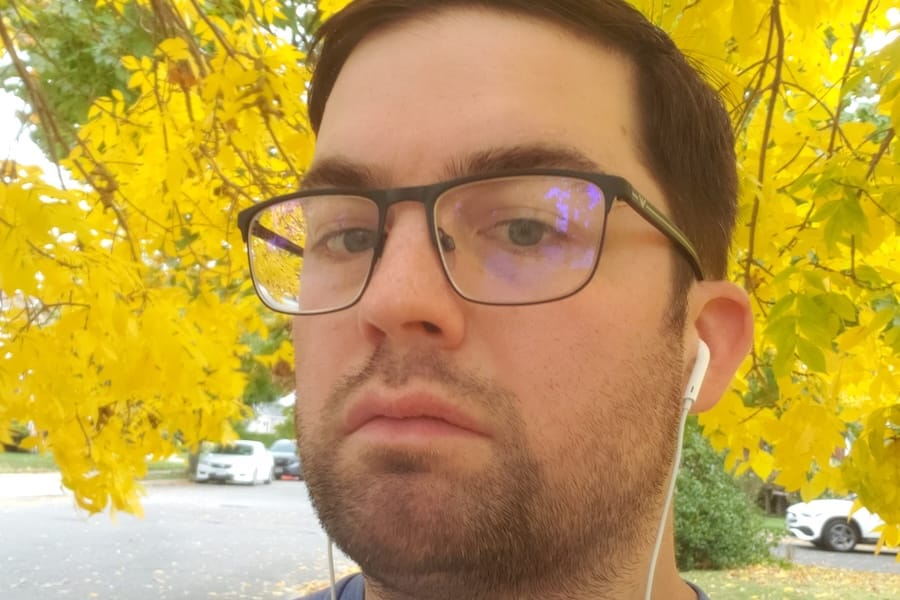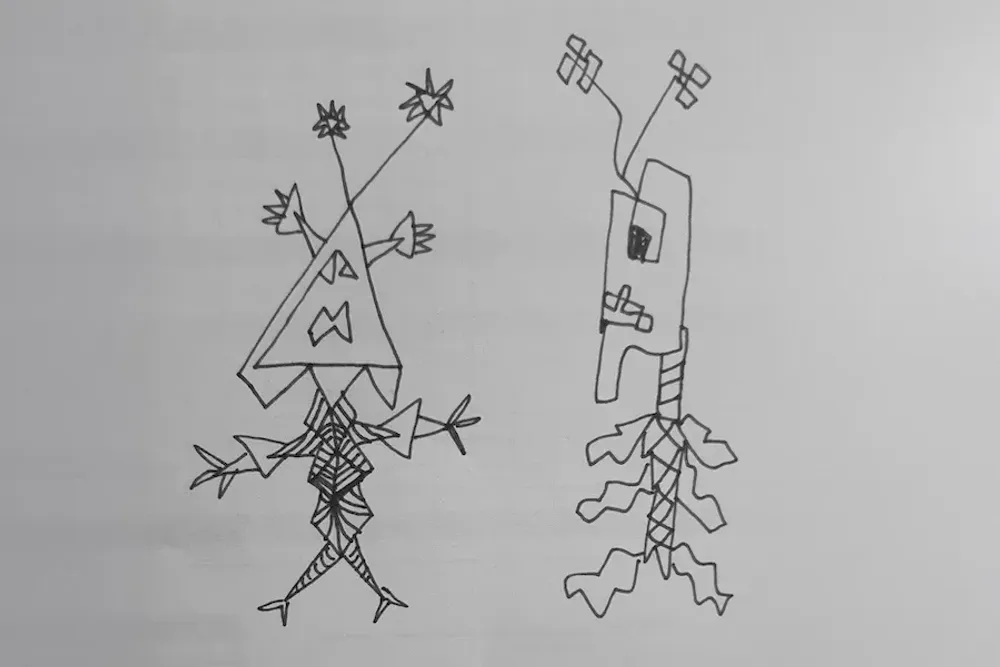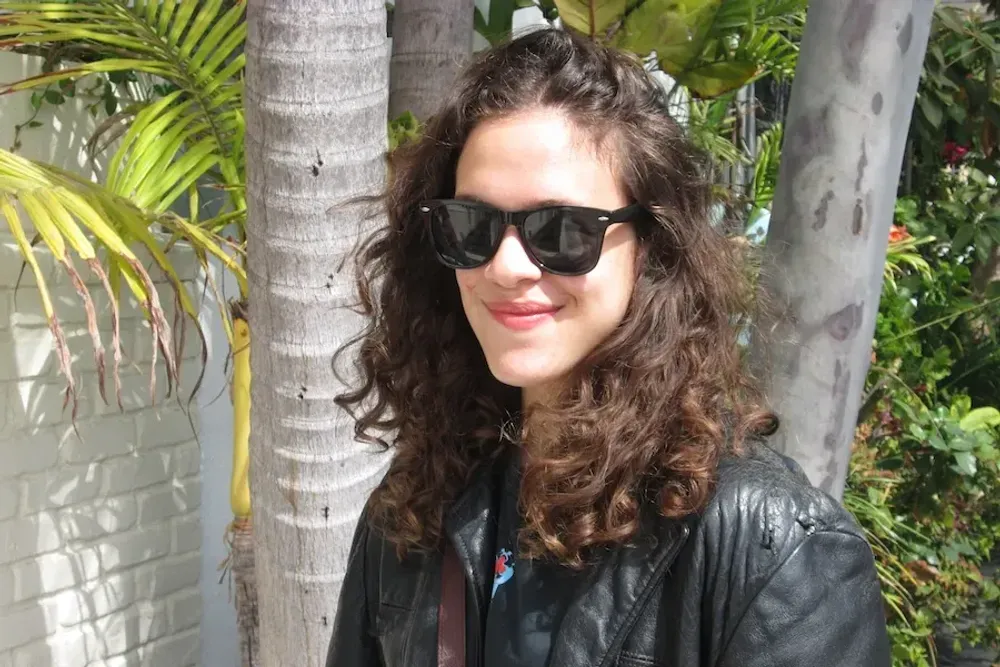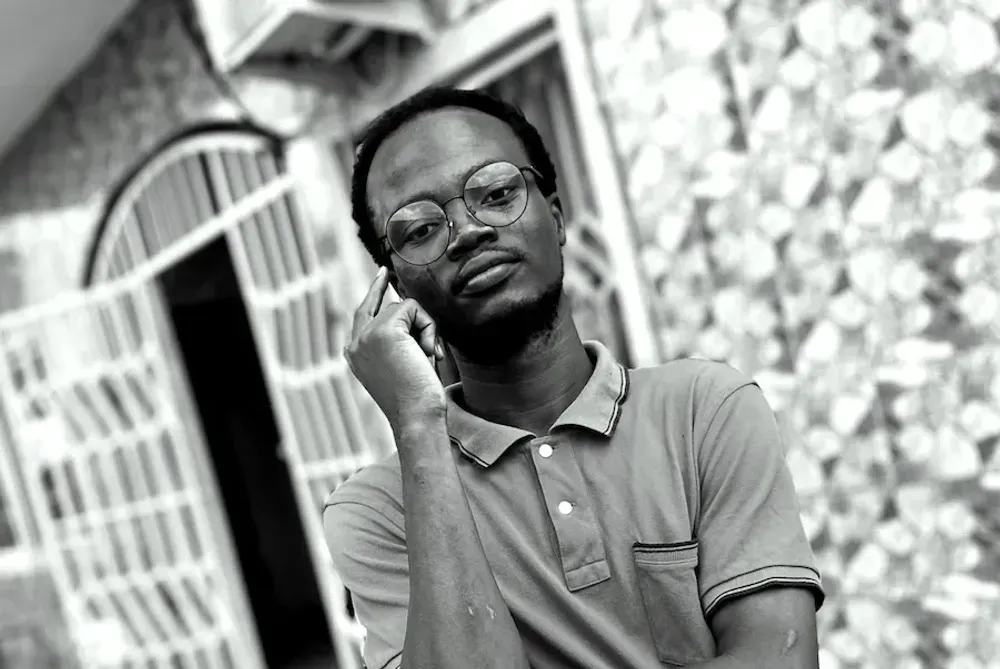Contain Myself
prose by Alex J. Tunney
For most of my life, winter was the only season I felt truly at home in my body. When the snow would layer the landscape outside, I would layer on clothing. Neither would fully transform what was underneath, but both would obscure the shape of things.
The extended year of lockdown would change that. The virus was a silent but harsh wind that swept through spring. I only underwent a week of muted senses of smell and taste, but a worry that my condition would worsen lasted for weeks until I was able to dismiss it. The experience unsettled my understanding of my body. It was a humbling reminder that there was no separation of mind and body; it’s all and only me.
In the following winter, I moved into a studio apartment with only the expectation that I would have more time to myself than before. I treated the place as another layer around me and watched the snow fall outside.
I saw myself as a pilot of a flesh contraption. I would treat my body like a lazy pet, one that I was begrudgingly taking care of. Easier to disassociate than to deal with my frustration with my physical reality.
While I understood that I was generally healthy and able-bodied, in my mind’s library was a catalog of my unappealing features to shame myself with. I ignored minor sight and hearing issues, instead focusing on my physical attributes: how my toes look like an evolutionary chart or how my body hair grows like an ill-tended garden. My body was both too much and not enough.
Most frustrating was my stomach. It was emblematic of my ongoing weight issues and what I presumed everyone focused on. Any excuse to cover it up, typically with a sweater to add some structure, I would take. Not a real change, but the illusion of a less round body would suffice.
My preoccupation with how I’m seen stems from having very little time and space exclusively my own throughout my life. While childhood only affords you so much privacy, my adulthood has been spent in college residence halls, shared apartments, and houses with family members where I had not much but a bedroom as a truly private place. In these places, often the only real solitude I got was when I slept. When you live with and amongst other people, sometimes it feels like the only place you are alone is in your mind.
But that winter, outside the occasional visitor, I was alone. It took me a few weeks of in the apartment to grasp what that meant.
Initially, I filled rooms with the sound of music, TV shows and YouTube videos. When I didn’t have music or other people’s voices, I talked to myself. Sometimes, it was about a current chore or a reminder of the week’s plans and other times it was simply random phrases or minor nonsense. In the beginning, I would ask myself, Am I trying to keep myself company? I would catch myself, thinking it was silly. But I eventually concluded: Who else is here to judge that besides me? As sole authority, I have decided not to care. My noises can reside here along with me.
The isolation also gave me room to reckon with what I have covered up with clothes all these years. After the perplexing fits and spurts of puberty, I find myself feeling like I’m on the outskirts of manhood. Somewhere at the intersection of society’s perceptions of gay men, its understanding of masculinity, and its thoughts on people’s shape and weight, I am lost. Is it an outside expectation or something internal? Am I describing something other cis-gendered people feel and just don’t talk about? Is this something specific to me?
It’s a feeling hard to describe. Is it too pithy to say that I’m gender mostly conforming? I feel most comfortable in a box marked male, but it’s a box I’m spilling out of. All I have are rough metaphors and loose labels. Words can only get so close, so the frustration remains.
Spending more time alone, I have realized the core of my anxiety is not having a coherent explanation for my body and for who I am. What the babbling around my place has taught me, however, is that words are sometimes just for other people. I am not an equation to be solved.
When arrived at this thought, it felt too simple: that I was dodging and retreating from the issue. I was also uncomfortable with my ability and privilege to do so. Over time, however, I have given myself permission to withdraw, to grant myself a reprieve. Having carried the stress of dealing with other’s observations of me on my body and in my mind for the past three decades, unburdening myself from them for however long I can get is a freedom I am granting myself. At home, I let the question of definition hang like one of my coats on a hook.
Not needing to always justify my figure has freed up some space in my mind. In its place, I’m trying to pay more attention to my body instead of just uncritically sticking to routines. I’m shifting my focus from preparing an appealing package for the outside world to comprehensively caring for myself.
I did not emerge from the other side of that winter with a new fully formed sense of self, instead I gained a few pounds and some more peace of mind. Yes, there is still a comfort found in how my body looks in a sweater. I will still venture out into the world prepared with a brief, easy answer of who I am. And I know I’ll never be fully at home in my body as, like the seasons, my body will change over time. But now, I’m prepared to learn not just to live with it, but in it and my potential new shapes, over and over again.
Alex (he/him) is a writer in New York. His writing has been published in Lambda Literary Review, The Rumpus, Complete Sentence, The Inquisitive Eater and Unwinnable. He is an editor for Pine Hills Review. Website





Comments